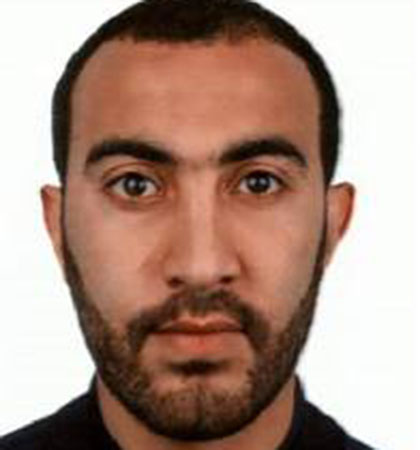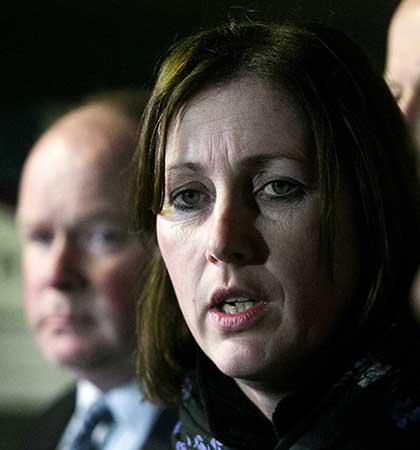TWO men have been arrested by An Garda Síochána following the investigation into London terrorist Rachid Redouan's links to Ireland.
 Rachid Redouane claimed to be both Libyan and Moroccan and was found with an Irish ID card. (Picture: Met Police)
Rachid Redouane claimed to be both Libyan and Moroccan and was found with an Irish ID card. (Picture: Met Police)The men, both in their 30s, were arrested in Wexford and Limerick respectively as Irish links to the London Bridge attacker emerged.
An Garda Síochána have said the arrests are not related to terror charges.
Rachid Redouane, a Moroccan national, was found with an Irish ID card after he was shot dead by Metropolitan Police following the attack on London Bridge on Saturday, June 3.
Redouane had married an British-born woman from an Irish family at a registry office in Dublin in 2012, and they had lived together in Grosvenor Square, Rathmines for a period of time.
The first man, arrested on June 5 in Limerick, was thought to have known Rachid Redouane.
He was arrested under the Theft and Fraud Offences Act 2001, and was detained under Section 4 of the Criminal Justice Act.
He was later released without charge. A file is being prepared for the DPP.
The second man was arrested in Wexford on June 6, also for suspected offences under the Theft and Fraud Offences Act, and is still detained under Section 4 of the Criminal Justice Act at Wexford Garda Station.
Officers from the Special Detective Unit and the National Immigration Bureau arrested the two men, who were linked to the London attacker through documentation in his name, RTÉ reports.
 AGSI President Antoinette Cunningham has said An Garda Síochána are not prepared for a terrorist attack in Ireland. (Picture: Sam Boal /Rollingnews.ie)
AGSI President Antoinette Cunningham has said An Garda Síochána are not prepared for a terrorist attack in Ireland. (Picture: Sam Boal /Rollingnews.ie)It is believed they were questioned about the use of documentation and PPS numbers in the name of Redouane.
But An Garda Síochána have stressed the investigation is focused not on terror but on theft and fraud offences.
The arrests come as the president of the Association of Garda Sergeants and Inspectors have said Ireland's security forces are not prepared for a terrorist attack.
It is estimated that there are 30 radicalised individuals currently monitored by An Garda Síochána in Ireland.
Since the Westminster Attack in March, Antoinette Cunningham said Ireland's police force "has not seen one single thing change by way of counter-terrorism training, by way of increased resourcing, by way of daily briefings."
She said the association would be 'very concerned' about the capability of front-line officers to deal with a terrorist attack in this country.
"You can ask any front-line officer around Ireland if they feel they are adequately trained to deal with terrorism," Ms Cunningham added.
"And I don't believe you will find one that says they are."
She said an integrated approach to training is needed with elite units and front-line people; response times and where back-up would come from would also need to be gauged.
"We have to go to every district and division around the country to see what our capability is, in each area where we think a terrorism threat could occur, and make sure we are adequately trained and resourced to deal with it."

